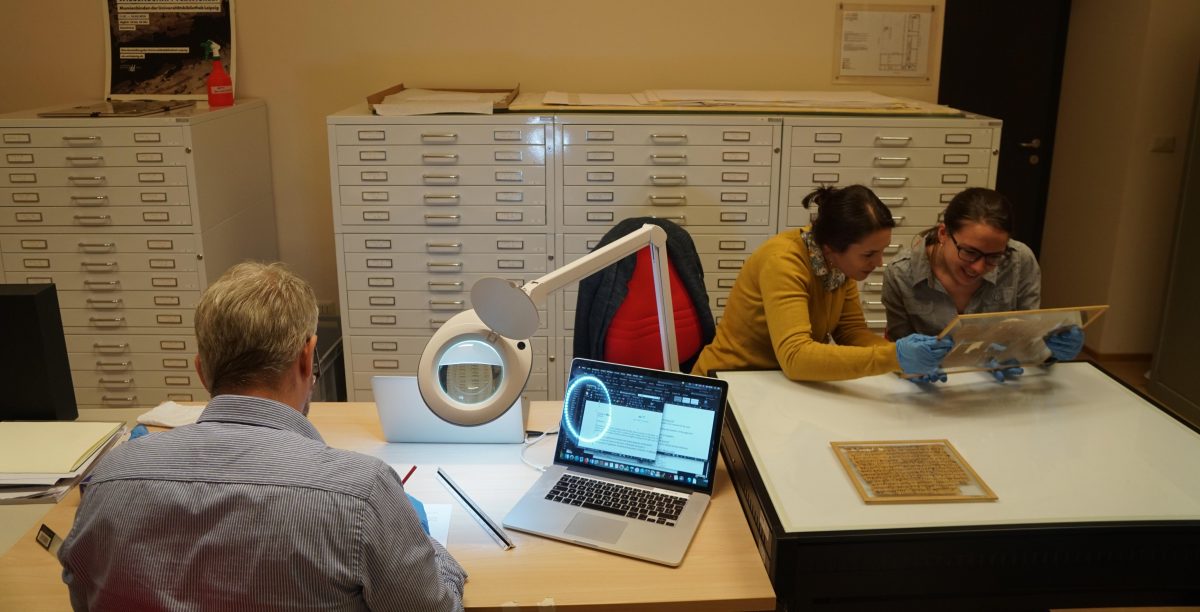Our work within the frame of the ‘Crossing Boundaries’ Project comprises the transcription, transliteration, and translation of hundreds of papyrus fragments. These will be uploaded to the ‘Turin Papyrus Online Platform’ (TPOP). This work represents the first step in the identification of the contents of the papyri. It will include such information as descriptions of text contents, keywords, observations on handwriting, join suggestions, and bibliographical references. These data will allow the reconstruction of papyrus fragments into complex documents, such as papyri sheets or even rolls that carry several texts of a different nature, or which bear several different hands. This first-hand information will also guide future research into the ancient history of these documents by providing an initial insight into the writing and archival practices of scribes. It is for this reason that the identification of both texts and hands is of crucial importance.
The first stage of our work is the dividing of the material according to our respective fields of specialisation: Matthias handles everyday texts (such as private or administrative letters, accounts, lists, and juridical texts), while Nathalie works with literary texts (tales, teachings, ‘miscellanies,’ and magical texts). This division between ‘everyday’ texts and ‘literary’ is highly artificial and largely analytic, however, as it is clear from the papyri that scribes mastered multiple genres of text and switched back and forth from one genre to the next in everyday life. Close collaboration between Matthias and Nathalie is thus of the utmost importance, especially when it comes to suggesting that fragments may belong to the same document or may have been written by the same scribe.

